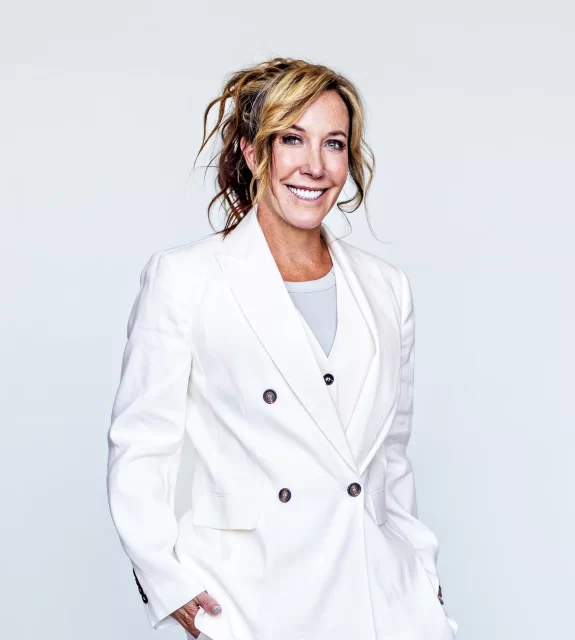Over the years, Dr. Brian Levine has been cited as one of the nation’s leading fertility experts in The New Yorker, New York Post, NBC, CNN, Avenue Magazine among others, offering valuable insight on everything from fertility misconceptions, egg-freezing 101, to how men can boost their fertility. Dr. Levine attended New York University School of Medicine, served as the President of the NYU Alumni Association, and was the only physician on NYU’s Board of Trustees during his 7-year tenure. Recently he was awarded the Meritorious Service Award, the highest award bestowed upon an alumnus for their extraordinary service and continuing devotion to NYU and who embodies the University motto: To Persevere and to Excel.

Fertility exams are of high importance. Unfortunately, many people do not undergo a fertility evaluation until they have trouble getting pregnant, staying pregnant, or looking to freeze their eggs. Fertility exams should be part of the yearly physical and part of an evaluation by an OBGYN. So, the most important thing to recognize is that you cannot make any decisions with a single evaluation point. What you want to do is make decisions based on trends.
The most common question Haute MD expert, Dr. Brian Levine gets from people about freezing their eggs is,” when do I do it, and how do I know that my body is not about to change?” The answer is: that we only know that with routine screening. So, while there is no data about the utility of how often you should be screened or when to screen, but a comfortable rule of thumb is, if you're going to your OBGYN annually, ask them to look at your numbers and to look at your results. A fertility routine exam for a woman should involve an ultrasound to look at the ovaries and the uterus and blood work to look at the egg count and the hormones that say how well the system works to produce eggs.
HB: Will changing your lifestyle (diet, exercise, smoking, drinking) affect your fertility?
BL: Absolutely, so few incremental lifestyle improvements can significantly improve outcomes. While most people can't make lifestyle changes to increase the number of eggs they have, we know that lifestyle changes can help people improve the quality of their eggs. Limiting smoking and drinking for example, can have profound positive outcomes.
HB: What suggestions do you give your patients to be healthier?
BL: Balanced diet and everything in moderation. Don't do any extreme diets because that can also be a problem, but try to avoid the four W's when it comes to diet, which are white sugar, white rice, white wheat, and skim dairy products, because those have a little bit more sugar than regular dairy—and making conscious decisions about if you're going to drink may be trying to limit that to just a couple days a week or, if anything just a weekend.
HB: Are any support groups available for women struggling with their fertility?
BL: The number one support group out there is called Resolve; they have a number of great resources on their website and local support groups, and national support groups. Other organizations like the American Society for Reproductive Medicine or ASRM do an outstanding job of having patient resources available to help people navigate this truly confusing world of fertility.
Then lastly, there are some excellent telehealth options, for example Maven, where you make the telehealth appointment and talk to a fertility doctor and get a quick consult in 15 minutes to understand if there's something you need to be worried about and what you should start thinking about as you start exploring your fertility. An informed and educated patient is a patient that has a good experience, regardless of the outcome. No one likes to be blindsided with information, so if a patient can feel like they are well supported and they know what questions to ask when going through their evaluation, well, then I think we're setting everybody up for success.

HB: What vitamins should a woman take daily? Especially if they are trying to get pregnant?
BL: A prenatal vitamin is easy to take, but many people can't tolerate it. They upset their stomach, or they're too big, or they're too expensive. So I say start with just a multivitamin; if you can remember to take a multivitamin every day, you're better than most of my patients. If you eat a balanced diet, you'll get the majority of the vitamins you need from that diet. And then, of course, lastly, if you are itching to take a vitamin, you can go look at some of the resources that are out there: fertility patches and vitamins.
An example is Perelel; they have a vitamin that is in a sachet that combines different vitamins that is put together into a plan for fertility to maximize the outcomes. For a patient who is trying to get pregnant, or for the patient trying to freeze their eggs to optimize their body, I recommend taking a vitamin whenever you are thinking about it. When the thought has crossed your mind, there's no reason not to start, and there's no harm in starting too soon. With that said, you should know that it usually takes at least one to three months to build up levels in your blood for any of these vitamins to really make a big difference, so don't have unrealistic expectations that in just a couple of days of the vitamins will have a big outcome.
HB: What are the 3-5 female health concerns that you hear frequently?
BL: The number one question we have is that people are worried that they ran out of eggs and waited too long to see us. The second concern we see all the time is that their partners have no sperm. Everyone's afraid of having no eggs and no sperm. The third thing is that people have heard a lot about endometriosis, chronic pelvic pain, discomfort, and painful periods. There's increasing awareness of something called silent endometriosis we hear from many patients asking us to evaluate them for silent endometriosis where maybe they missed this diagnosis their whole life. The fourth thing we hear from many people is that they want to prevent a miscarriage, and what can they do to prevent something from happening.
HB: Please feel free to share any more information here.
BL: There are a lot of great providers throughout the country, and if you have trouble making an appointment, you should know that as a result of the pandemic, so many of us are offering telehealth. So, it is okay to reach out to doctors who may not be in your own geographic region for a telehealth appointment because you need to start somewhere. It's an excellent first step to do a telehealth appointment because we can order your blood work or ultrasound locally and help you interpret those results. To schedule a telehealth appointment with Dr. Levine or other CCRM physicians around the country, please click here.
For more information, visit Dr. Brian A. Levine's social media:
























